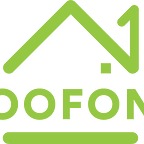Evaluating Investment Properties In Nigeria: Net Operating Income.
You decide to find that sweet spot we wrote about in the previous post (click here to check it out) and you get a rental property at Yaba then rent it out at a rent price of N2,400,000 annually. What’s going through your mind is that you will make N2.4m yearly from that property and this is false!
So, Just like bonds and stocks real estate investments produce “dividends” which is what most investors call “Rent” in Nigeria. Investors are often quick to ask “What is the rent price in this area?” immediately after knowing the price of the property, and while this is right thing to do, this is not the “dividend” of that property.
The dividend of an income generating property is called the Net Operating Income (NOI) and this is simply the annual income generated by an income-producing property after taking into account operational expenses.
The Net Operating Income is synonymous to the dividends on a 10-year fixed rate bond. It simply the money that enters your account after all operating expenses have been taken into account.
How do you calculate NOI.
Calculating NOI is fairly straightforward so let’s try and explain the intuition behind it and use your newly purchased rental property at Yaba as an example. It is worthy to remember that at roofonecapital.com our goal is to make real estate investments as simple as possible!
Understanding the intuition behind NOI is somewhat helpful for you as an investor and to get your NOI ( or dividend of a property) you need to account for the following;
- Vacancy loss or credit loss: This accounts for income lost due to tenants vacating the property or defaulting in their lease payments.
- Property Expenses: This accounts for expenses such as Land Use Charge taxes, insurance, management fees, repairs and maintenance, estate fees etc.
So going back to your newly purchased rental property at Yaba and estimated rent of N2,400,000/year (i.e. N200k/month), you can get the NOI (i.e. profit) by doing the following (take a look at the income state);
- Remove the cost of vacancy and credit losses (~10% for Yaba and ~2%*).
- Remove property expenses such as LUC taxes, insurances etc.
- Then you arrive at ~N1.77m as your NOI.
Looking above at the pro forma statement, our model accounts for other possible costs which are subjective to investors. The first is the Capital Expense Reserve, and as a rule of thumb investors keep a percentage of the rent in what we call a capital expense reserve to carter for possible future expenses that comes from improving the property e.g. repainting, changing the roof etc. Also, if the property is acquired using a mortgage, then investors are obligated to make monthly deposits to the mortgage bank which we account for in the Loan Information section. Lastly, our model accounts for Taxable Income, which is tax paid on the income generated.
In summary, the NOI is the dividend in real estate investment. In our next post we will be writing about the Capitalization Rate (Cap Rate), which tells us about the rate of return on an investment property.
At roofonecapital.com our upcoming version of the platform will be out soon and on that platform you can analyze investment properties with ease and invest securely via our escrow service.
**Vacancy rates are gotten from real estate research journals and reports.
